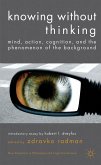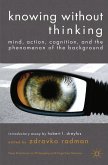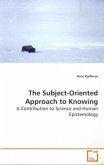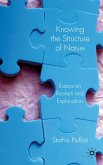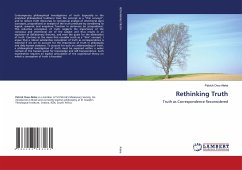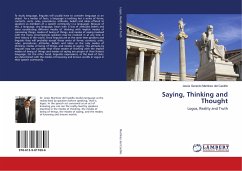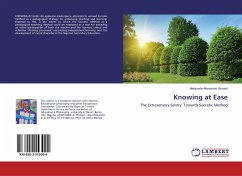Objective truth has traditionally been conceived of
in terms of a thought s representation of or
correspondence with an immutable reality. Thomas
Kuhn s evolutionary picture of science based on
notions of incommensurable paradigms, different
worlds and revolutionary ruptures shatters the
traditional, representationalist view of scientific
development, but is often seen as impugning the very
notion of objectivity along with this positivistic
view of science. However, embracing Kuhn s
picture of science need not entail disclaiming
objectivity if one moves beyond the idea that
objectivity must be thought of in terms of
representations and fact-value dualisms. By thinking
with John Haugeland of objectivity as the idea that
everyone can be wrong about something and, thus, that
constituted objects can bring down theoretical
systems, the
tenable and textured notion of
antirepresentationalist objectivity implicit in
Kuhn's work begins to come into view. This notion of
objectivity allows us to go beyond the disposal of
objectivity that Richard Rorty finds necessary in
jettisoning the broken Cartesian representationalist
and dualistic epistemological tradition Rorty rightly
criticizes.
in terms of a thought s representation of or
correspondence with an immutable reality. Thomas
Kuhn s evolutionary picture of science based on
notions of incommensurable paradigms, different
worlds and revolutionary ruptures shatters the
traditional, representationalist view of scientific
development, but is often seen as impugning the very
notion of objectivity along with this positivistic
view of science. However, embracing Kuhn s
picture of science need not entail disclaiming
objectivity if one moves beyond the idea that
objectivity must be thought of in terms of
representations and fact-value dualisms. By thinking
with John Haugeland of objectivity as the idea that
everyone can be wrong about something and, thus, that
constituted objects can bring down theoretical
systems, the
tenable and textured notion of
antirepresentationalist objectivity implicit in
Kuhn's work begins to come into view. This notion of
objectivity allows us to go beyond the disposal of
objectivity that Richard Rorty finds necessary in
jettisoning the broken Cartesian representationalist
and dualistic epistemological tradition Rorty rightly
criticizes.


